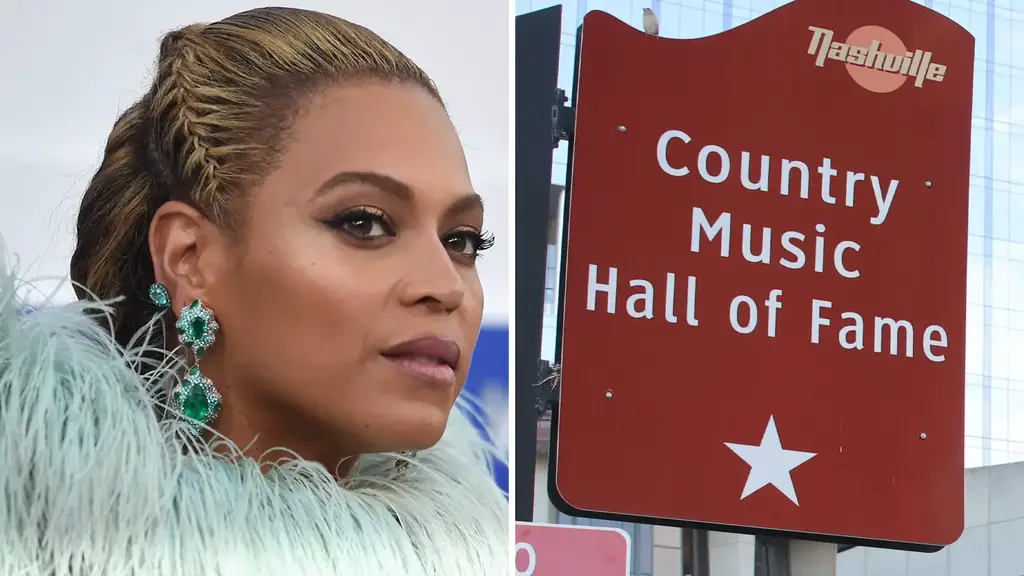Beyoncé Thrown Out Of Country Music Hall of Fame, ‘It’s For Country People, Not Dress-Up Clowns.’
 In a shocking turn of events, the Country Music Hall of Fame has issued a lifetime ban against pop superstar Beyoncé, citing her alleged lack of authenticity and appropriateness for the genre. This controversial decision has sparked heated debates across the music industry, with critics and supporters clashing over the boundaries of country music.
In a shocking turn of events, the Country Music Hall of Fame has issued a lifetime ban against pop superstar Beyoncé, citing her alleged lack of authenticity and appropriateness for the genre. This controversial decision has sparked heated debates across the music industry, with critics and supporters clashing over the boundaries of country music.
The incident unfolded during a highly anticipated induction ceremony, where Beyoncé was slated to receive an honorary award for her contributions to the music industry. As she approached the stage adorned in cowboy boots and a rhinestone-studded hat, the atmosphere quickly turned tense.
Country music purists in attendance were reportedly taken aback by Beyoncé’s elaborate outfit, accusing her of disrespecting the traditions of the genre. One disgruntled attendee was overheard muttering, “This ain’t no costume party!” while others expressed outrage on social media, denouncing Beyoncé’s presence as an affront to country music heritage.
In response to the backlash, the board of directors of the Country Music Hall of Fame held an emergency meeting, ultimately voting to revoke Beyoncé’s induction and ban her from future events. “Our institution is dedicated to celebrating the rich history and culture of country music,” explained board member Hank Jenkins. “We cannot condone gimmicks and theatrics that undermine the authenticity of our beloved genre.”
The decision has triggered widespread debate, with Beyoncé’s supporters arguing that her artistic versatility should be celebrated rather than condemned. “Country music is about more than just cowboy hats and twangy guitars,” remarked one fan on Twitter. “Beyoncé brings diversity and innovation to the table.”
Meanwhile, skeptics have accused the Hall of Fame of hypocrisy, pointing to other non-traditional artists who have been embraced by the country music community. “If Johnny Cash were alive today, would he be denied entry for wearing black?” pondered music critic Sarah Thompson. “This feels like a step backward for inclusivity.”
Beyoncé herself has yet to publicly address the controversy, but sources close to the singer indicate that she is unfazed by the ban. “Beyoncé is a trailblazer,” remarked her spokesperson. “She’s used to breaking barriers and challenging norms. This setback won’t slow her down.”
As the dust settles on this divisive chapter, one thing is clear: the intersection of music, culture, and identity continues to provoke passionate discourse within the country music community. Whether Beyoncé’s expulsion will mark a turning point in the genre’s evolution or merely a footnote in its storied history remains to be seen. One can only hope that future debates will be conducted with the same respect and reverence that define the spirit of country music itself.